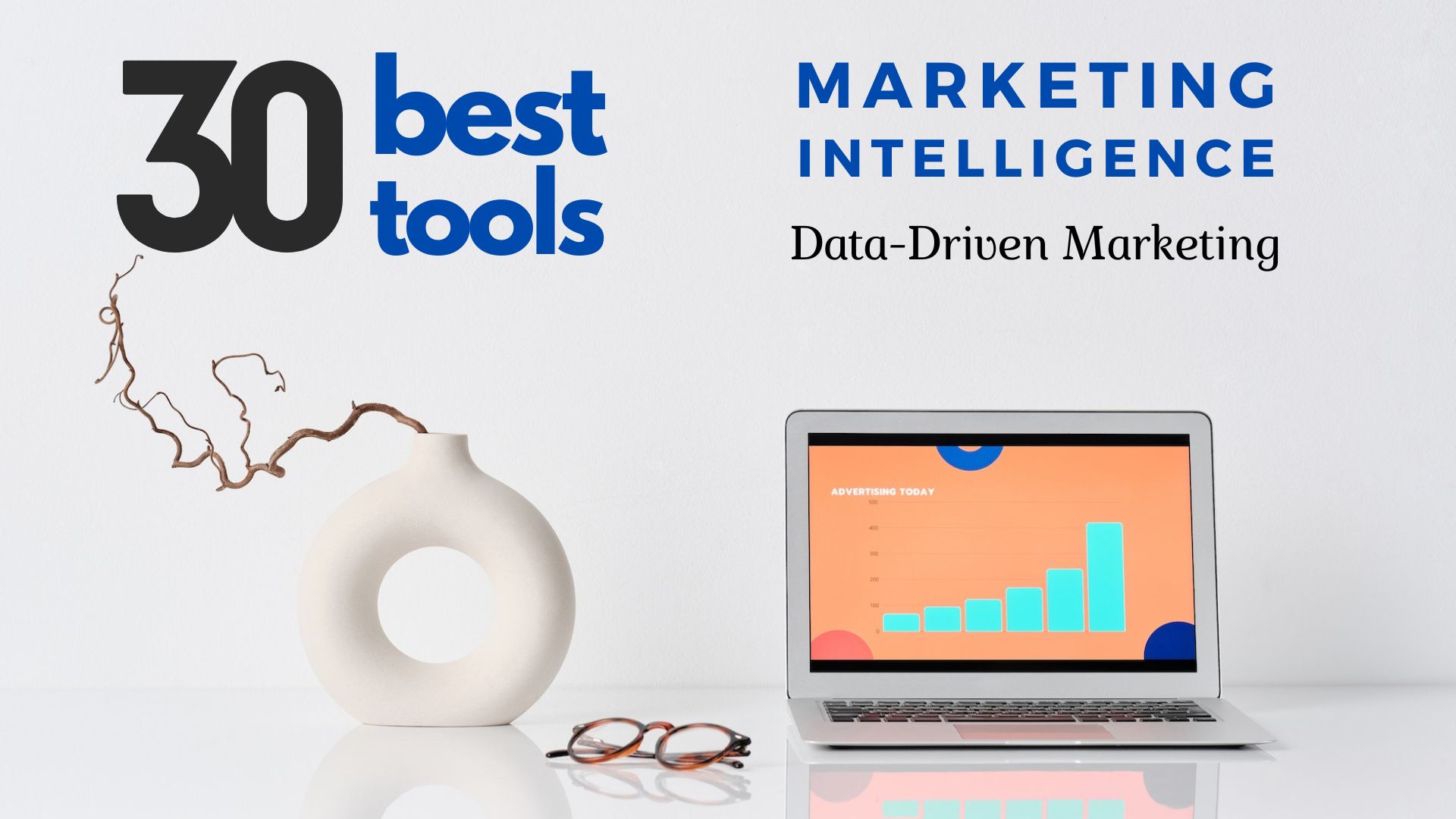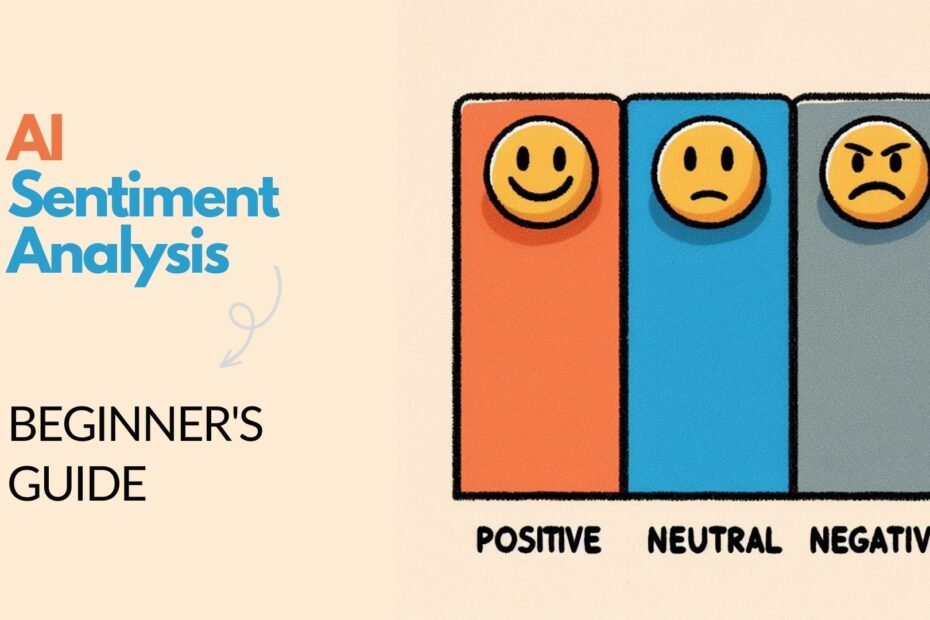Have you ever scrolled through a comment section on social media and wondered, “What are these people REALLY thinking?” Sure, you can sometimes tell if someone’s happy or mad based on their words, but what about those confusing posts that leave you scratching your head? AI sentiment analysis is like having a secret decoder ring for the online world, helping you understand the emotions hidden behind people’s words.
Imagine being able to analyze a customer review and instantly know if it’s a glowing recommendation or a hidden rant waiting to explode. Or picture understanding the true feelings behind a seemingly neutral tweet about your brand. This is the power of AI sentiment analysis.
Table of Contents
What is AI Sentiment Analysis?
AI sentiment analysis might sound fancy, but it’s actually a pretty cool concept. Here’s the lowdown:
Decoding Online Emotions: The Power of AI Sentiment Analysis
Think of it like having a super-powered machine that can read online text and understand if it’s filled with positive vibes (like a five-star review), negative energy (think a scathing tweet), or just laying out the facts (neutral). It’s basically an emotional translator for the digital age!
The Building Blocks: AI and Sentiment Analysis Explained
Here’s the breakdown of this awesome technology:
- Artificial Intelligence (AI): This refers to those super-smart computers that can learn and analyze information on their own, kind of like a digital brain on steroids.
- Sentiment Analysis: This part focuses on understanding the emotional tone of a piece of text. Imagine it like figuring out if someone’s writing a love letter (positive) or a break-up note (negative).
Putting it into Action: A Real-Life Example
So, how does AI sentiment analysis work its magic? Let’s use a real-life example to make things clear.
Imagine you’re a company launching a new line of sneakers. You could use AI sentiment analysis to scan through all the online chatter about your new kicks. The AI would then analyze the words and phrases people are using, and tell you if the overall sentiment is positive (“These sneakers are the bomb!”), negative (“These things feel like cardboard boxes on my feet!”), or neutral (“The new sneakers look interesting, but I need to see some reviews first”).
Pretty cool, right? By understanding the emotions behind what people are saying online, you can make better decisions for your business. But how exactly does this AI system become such a master of emotions? We’ll explore that in the next section!

How Does AI Sentiment Analysis Work?
We’ve established that AI sentiment analysis is like a secret decoder ring for the online world, but how exactly does it crack the code of human emotions hidden within text? While the technical details can get a bit complex, let’s break it down into a user-friendly format:
Training the AI: Building a Lexicon of Emotions
Imagine teaching a puppy to recognize different commands. You show the pup a treat (positive) and say “good boy,” then show it a toy (neutral) and say “fetch,” and finally, give it a timeout (negative) for bad behavior. Over time, the pup learns to associate certain cues with specific emotions.
AI sentiment analysis works in a similar way. Here’s the process:
- Massive Data Feeding: The AI system is trained on a huge amount of text data that’s already been labeled with emotions (positive, negative, or neutral). This data could include things like social media posts, online reviews, and customer surveys.
- Learning Emotional Cues: By analyzing this pre-labeled data, the AI learns to identify specific words, phrases, and even punctuation that often indicate certain emotions. For example, words like “love,” “happy,” and “excited” might be associated with positive sentiment, while words like “hate,” “angry,” and “frustrated” might signal negativity. The AI also considers factors like emojis, sarcasm, and sentence structure to get a more nuanced understanding.
Think of it this way: The AI is building a giant emotional dictionary, learning the language of human feelings expressed through text.
Different Techniques for Decoding Emotions
There are a few different approaches AI sentiment analysis can utilize:
- Lexicon-Based Analysis: This method relies on a predefined list of words and phrases associated with specific emotions. The AI scans the text for these keywords and assigns a sentiment score based on the identified words.
- Machine Learning: This approach takes things a step further. The AI is trained on massive amounts of data and learns to identify emotional patterns on its own, going beyond just pre-defined keywords. This allows for a more nuanced understanding of sentiment, even for complex or sarcastic language.
We won’t dive too deep into the technical weeds here, but it’s important to understand that AI sentiment analysis is a powerful tool that can go beyond simple keyword matching. It’s constantly learning and evolving, becoming better at deciphering the emotional undercurrents of online communication.

Why Should You Care About AI Sentiment Analysis?
So, we’ve unveiled the secrets of AI sentiment analysis and how it works its magic. But why should you, as a business owner, marketer, or even a curious individual, care about this technology? Well, because the benefits of AI sentiment analysis are like a treasure trove waiting to be explored!
Unveiling Customer Emotions: A Goldmine of Insights
Imagine having a direct line into the hearts and minds of your customers. With AI sentiment analysis, you can get pretty darn close! Here’s how it unlocks valuable insights:
1. Improved Customer Service:
Feeling the heat from negative online reviews? AI sentiment analysis can help you identify unhappy customers before they churn. By analyzing social media posts and online feedback, you can proactively address customer concerns and improve your overall service.
2. Marketing Campaigns with Heart:
Crafting marketing content that resonate with your audience is key to success. AI sentiment analysis helps you understand how your target audience feels about your brand, your competitors, and specific products or services. This allows you to tailor your marketing campaigns to evoke the desired emotions and connect with your audience on a deeper level.
3. Building Brand Reputation:
Negative sentiment online can spread like wildfire. AI sentiment analysis helps you identify potential brand reputation issues early on. By addressing negative feedback promptly and professionally, you can prevent small problems from snowballing into PR disasters.
4. Product Development for Real People:
Want to create products that people genuinely love? AI sentiment analysis can analyze customer feedback and reviews to uncover what features resonate and what pain points need addressing. This allows you to develop products that truly meet your audience’s needs and desires.
5. Keeping Tabs on the Competition:
Feeling a little left out in the competitive landscape? AI sentiment analysis can help you understand how people perceive your competitors. By analyzing online conversations about your rivals, you can identify their strengths and weaknesses, allowing you to develop a strategic edge.
The numbers don’t lie: Studies have shown that a positive increase in customer sentiment can lead to a significant boost in sales. AI sentiment analysis empowers you to understand and influence these emotions, ultimately driving business growth.
In the next section, we’ll delve deeper into the world of social media, where AI sentiment analysis becomes a game-changer for businesses of all sizes.

AI Sentiment Analysis on Social Media
Social media has become the ultimate town square of the digital age. People are constantly sharing their thoughts, opinions, and experiences online, creating a massive treasure trove of data. But for businesses, wading through this sea of information can feel overwhelming. That’s where AI sentiment analysis steps in, acting like your personal translator for the social media buzz.
Why Social Media is a Perfect Match for AI Sentiment Analysis
Social media platforms are a goldmine of customer sentiment, but analyzing it manually can be a time-consuming and tedious task. Here’s where AI sentiment analysis shines:
- Cutting Through the Noise: AI can analyze vast amounts of social media data quickly and efficiently, identifying key trends and emotions hidden within countless posts and comments.
- Understanding the “Why” Behind the What: Not all mentions of your brand are created equal. AI sentiment analysis helps you understand the emotional context behind social media mentions. Is someone praising your new product launch (positive)? Or venting their frustration with customer service (negative)? This allows you to prioritize your responses and address issues efficiently.
- Real-Time Insights for Immediate Action: Social media conversations move fast. With AI sentiment analysis, you can gain real-time insights into what people are saying about your brand. This allows you to respond to positive comments and address negative feedback promptly, fostering stronger customer relationships.

Putting AI Sentiment Analysis to Work on Social Media: Actionable Tips
Ready to harness the power of AI sentiment analysis for your social media strategy? Here are some practical tips to get you started:
- Track Brand Mentions: Use AI tools to identify all mentions of your brand across social media platforms. This allows you to see the full picture of what people are saying and avoid missing any important conversations.
- Analyze Sentiment for Specific Campaigns or Products: Want to understand how your latest marketing campaign is resonating with your audience? Use AI sentiment analysis to analyze the sentiment surrounding specific hashtags or product mentions.
- Respond to Negative Sentiment Promptly and Professionally: A single negative comment can snowball quickly online. AI sentiment analysis can help you identify negative feedback in real time, allowing you to respond promptly and professionally to maintain a positive brand image.
- Use Insights to Improve Your Social Media Strategy: By analyzing the sentiment of your social media audience, you can gain valuable insights into what kind of content resonates best. Use this information to tailor your social media strategy to create engaging content that sparks positive emotions and fosters stronger brand loyalty.
AI sentiment analysis isn’t just about understanding the “what” of social media conversations; it’s about unlocking the “why” behind them. By delving into the emotional undercurrents of social media, you can build stronger relationships with your audience, boost brand reputation, and ultimately achieve your social media marketing goals.
In the next section, we’ll explore some of the readily available AI sentiment analysis tools that can empower you to unlock the secrets of social media and gain valuable customer insights.

AI Sentiment Analysis Tools for Everyone
The world of AI sentiment analysis might seem complex, but the good news is, you don’t need a Ph.D. in computer science to leverage its power. There are a variety of AI sentiment analysis tools available, catering to different needs and budgets.
User-Friendly Tools for AI Sentiment Analysis
Here’s a glimpse into the exciting world of AI sentiment analysis tools:
- Free and Freemium Options: Several free and freemium tools offer basic sentiment analysis features. These can be a great starting point for businesses or individuals on a tight budget. Keep in mind that free options may have limitations on data volume or advanced features.
- Paid Tools with Advanced Features: For businesses looking for more comprehensive analysis and functionalities, there are paid AI sentiment analysis tools available. These tools often offer features like in-depth sentiment reports, topic modeling, and the ability to analyze data from multiple sources (social media, email, surveys).
Here are a few popular AI sentiment analysis tools to get you started (Note: this is not an exhaustive list, and it’s recommended to research and compare features before choosing a tool):
- Brand24: This platform offers social media listening and analytics, including sentiment analysis. It allows you to track brand mentions, analyze sentiment across different platforms, and identify key influencers.
- MonkeyLearn: This user-friendly tool provides sentiment analysis alongside other text analysis features. It offers a free trial and various paid plans depending on your needs.
- Emplifi (formerly Socialbakers): This comprehensive social media management platform includes sentiment analysis as part of its suite of tools. It caters to larger businesses and agencies.
Remember: The best AI sentiment analysis tool for you depends on your specific needs and budget. Don’t be afraid to explore different options and find one that fits your workflow.
In the next section, we’ll take a peek into the exciting future of AI sentiment analysis and explore the potential advancements that lie ahead.

The Future of AI Sentiment Analysis
The world of AI sentiment analysis is still evolving, and the future holds exciting possibilities. Here’s a sneak peek at what’s on the horizon:
1. Decoding the Nuances of Human Emotion
Current AI sentiment analysis tools are quite good at identifying basic emotions like positive, negative, and neutral. However, the future holds promise for even deeper emotional understanding. Imagine AI that can detect sarcasm, frustration, or even excitement with greater accuracy. This would provide even more valuable insights into customer sentiment and online conversations.
2. Real-Time Sentiment Analysis for Immediate Insights
In today’s fast-paced world, real-time insights are crucial. The future of AI sentiment analysis looks towards even faster processing and analysis. Imagine being able to analyze sentiment as conversations unfold on social media, allowing for immediate response and crisis management.
3. Integration with Other Marketing and Customer Service Tools
AI sentiment analysis is already a powerful tool, but its potential becomes even greater when integrated with other marketing and customer service platforms. Imagine a future where sentiment analysis triggers automated responses, personalized marketing campaigns, or flags customer service representatives for urgent attention.
The possibilities are truly endless! AI sentiment analysis has the potential to revolutionize the way businesses connect with their customers, build brand loyalty, and ultimately achieve success.
Conclusion
AI sentiment analysis is no longer a futuristic concept; it’s a powerful tool readily available to businesses of all sizes. By understanding the emotions behind online conversations, you can gain valuable customer insights, improve your marketing strategies, and build stronger brand relationships.

Ali is a digital marketing blogger and author who uses the power of words to inspire and impact others. He has written for leading publications like Business2Community, Inc. Magazine, and Marketing Profs. When not writing, he enjoys spending time with his family.
